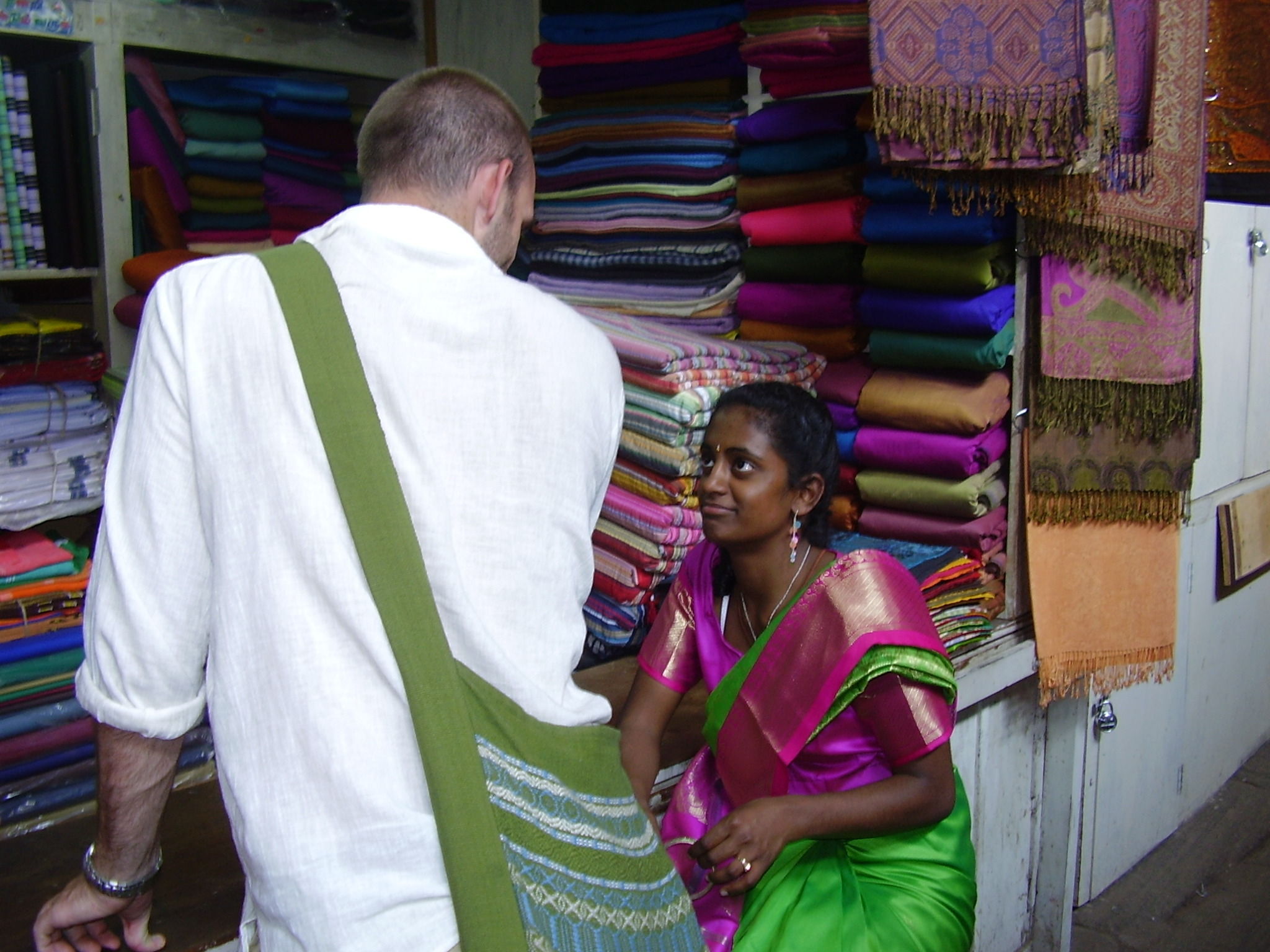



The plane was huge, but felt small as we landed in the country of my birth. It was a place that I had left fourteen years earlier, just days short of my second birthday, obviously not able to make the decision whether to stay or leave. That decision was made for me by my Indian birthmother and my American parents. Now I was returning to India as an American teen. I was excited to be seeing my brother, who had been studying abroad in the city of my birth, Madras, and city of my orphanage, Madurai. However, what was different about me from other American teens was that I was finally going to look like other people on the street. I was thinking about the differences that I would experience in the culture of my birth from the culture I grew up in. The questions swirled: Would I remember anything? Would I decide I missed India? Would I want to stay?
As we got off the plane I was anxious to see Joey. I wanted to sneak and blend, for the first time in my life, into a group of Indians just so I could go quickly through their fast-moving line. I couldn’t think about anything except seeing Joey and being the first one to give him a hug.
Then, there in a doorway, was my six-foot-tall brother, towering behind all of the shorter Indian men! He came up to us wearing a skirt (lungi) and carrying a green, patterned bag! My brother had gone to a third-world country where he didn’t speak anything close to English, didn’t use toilet paper, ate with his hands, and wore a “skirt “and “purse”!
The next day, on the way to pick fabric for our saris, I saw beggars lying on the street. I could pick any beautiful fabric I wanted for only eight dollars. It was such a small sum, but I knew it was too much for the poor on the streets, and I felt spoiled.
While the saris were being made we went for lunch and Joey taught me that I needed to eat without a fork, using my right hand only. Since I am left-handed, this was a challenge for me, but I wanted to blend in. We picked up our saris and my next challenge was to learn how to tie 6 meters of fabric around my body and still be able to walk!
Before we went to visit the slum school where Joey was teaching, he told me I couldn’t wear my new silk sari. He said that this neighborhood was very, very poor and it would be more polite to wear my cotton salwar. When we got there, I understood. I thought about how perhaps that is how I would be living, had I stayed in India.
As the days went on and we toured the city, orphanage, and ate delicious meals in simple hotels, my earlier concerns vanished. The longer I was in India, the more I appreciated the culture of my birth, but I also realized that who I was and where I belonged did not depend on a culture or a spot in the world. I am not just Indian or American, but Indian-American, proud of both of my cultures, and happy to be exactly who I am, exactly where I am. The longer I was in India, the more I thought about leaving Joey when we went home. Because, in the end, the family you belong to is the one you miss when they are not with you.
Dear Reader: This page may contain affiliate links which may earn a commission if you click through and make a purchase. Our independent journalism is not influenced by any advertiser or commercial initiative unless it is clearly marked as sponsored content. As travel products change, please be sure to reconfirm all details and stay up to date with current events to ensure a safe and successful trip.